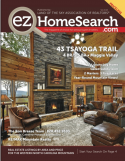Local Issues
Want more info? Want to get involved?
Contact Mike Butrum, ABR’s Government Affairs Director at 828.239.2907 or [email protected]
————————————————————————–
BUNDLE UP FOR THE RPAC TECHNOLOGY RAFFLE
Make a $25 investment to RPAC for your chance to win this incredible iPad Bundle!
Limit 10 entries or $250 per person. Entry deadline: April 25th!!
CLICK HERE FOR RAFFLE DETAILS INCLUDING ENTRY INFORMATION.
———————————————————————–
Please remember to weigh in on both the NCAR and NAR “Call to Action” emails. It’s easy to tell our local Representatives and local Senators how you feel about the REALTOR issues. Email Mike or visit NCAR’s website for more details.
———————————————————————–
GroWNC: http://www.gro-wnc.org/
Land-of-Sky Regional Council (LOSRC) was asked by area local governments to serve as the grant administrator and coordinating agency for GroWNC, the Sustainable Communities Initiative funded by the U.S. Department of Housing and Urban Development.
A Consortium of local governments, organizations and community members is leading the process. Interested groups and organizations can join the Consortium by reading and completing the Consortium agreement found here.
Core Study Areas include Jobs/Economic Development, Housing, Natural Resources, Cultural Resources, Energy, Land Use, Transportation, & Health and Wellness. Read more…
Mountain Resources Commission:
http://portal.ncdenr.org/web/ncmrc/about-us
———————————————————————————————–
Western North Carolina Vitality Index: http://wncvitalityindex.org
The Mountain Resources Commission was created to provide tools for local governments to enhance and sustain our natural and economic assets to ensure the long term health of this region and our people.
The Commission has absolutely no regulatory authority; it is strictly an advisory body.
The 17 members are appointed by the House, Senate, Governor and regional councils in the western region. The MRC continues to provide a forum for collaboration and civility among members with diverse interests and backgrounds. No other publicly-appointed entity like it exists in the western region.
The MRC works with a 13-member advisory council composed of members representing universities, nonprofits, government agencies and private business. Read more…
The Western North Carolina Vitality Index reports on the 27 counties of Western North Carolina through the perspectives of the region’s natural, social, built, and economic environments. Read more…
—————————————————————————————
River Arts District Transportation Project:
http://www.ashevillenc.gov/Departments/Transportation/RADTransportationProject.aspx
Committee formed by the City of Asheville, consisting of local associations, planners, civil engineers, and River Arts District [RAD] business and land owners, to develop the best option for the main road through the RAD.
As of March 2013, development project is complete, and the committee is looking for funding.
You can view the various options considered and the final choice on the RADTP website.
————————————————————————————————-
Buncombe County Tax Office: http://buncombecounty.org/Governing/Depts/Tax/Default.aspx
This is Buncombe County’s Tax Department website, which includes information regarding the 2013 Reassessment.
————————————————————————————————
Southern Appalachian Man and the Biosphere: http://samab.org
The SAMAB Cooperative is made up of 11 federal and 3 state natural resource agencies. The work of SAMAB is done by participating agencies, guided by an interagency Executive Committee. Read more…
—————————————————————————————————
Buncombe County Sustainability Plan: http://www.buncombecounty.org/governing/depts/planning/Sustainability.aspx
While the rich history of Buncombe County as both a proactive community and local government is highly recognized, as our community continues to grow we find ourselves increasingly focused on adapting to inevitable changes in a sustainable manner. In order to provide guidance to these efforts, Buncombe County is currently in the process of developing a County-wide Sustainability Plan. This plan will serve to inspire both community and local government to put sustainable practices first, thereby strengthening our environment, community, and economy. Read more…
—————————————————————————————————-
Charlotte Street Corridor Plan: http://www.ashevillenc.gov/Departments/PlanningDevelopment/NeighborhoodPlans.aspx#Charlotte2
The Charlotte Street Corridor Plan serves as a guide for the future development and improvements along the street. The plan will be used by elected officials, city staff and the community in making decisions related to the future of the street. Read more…

